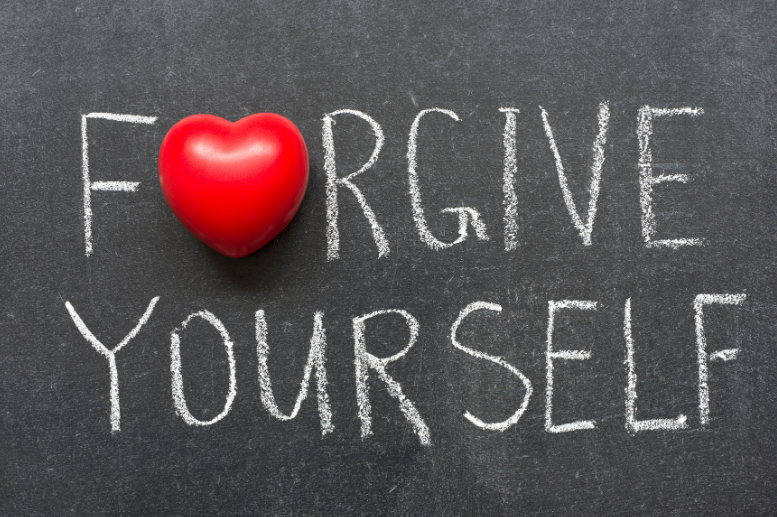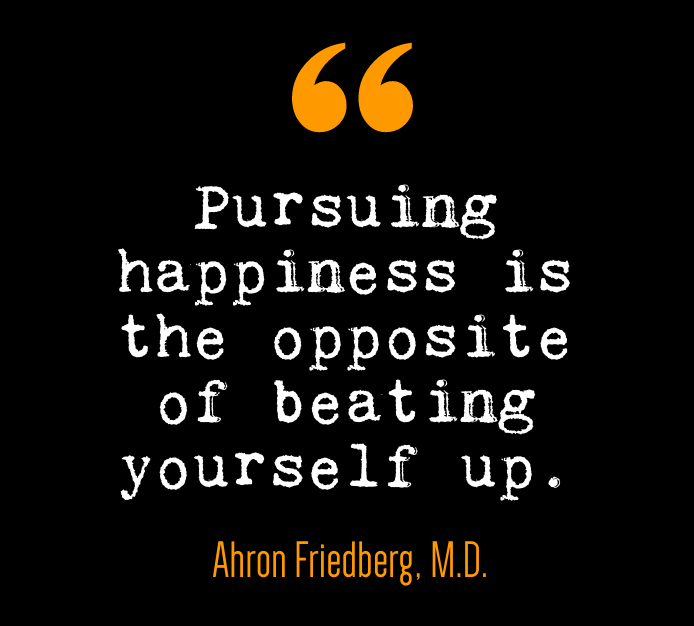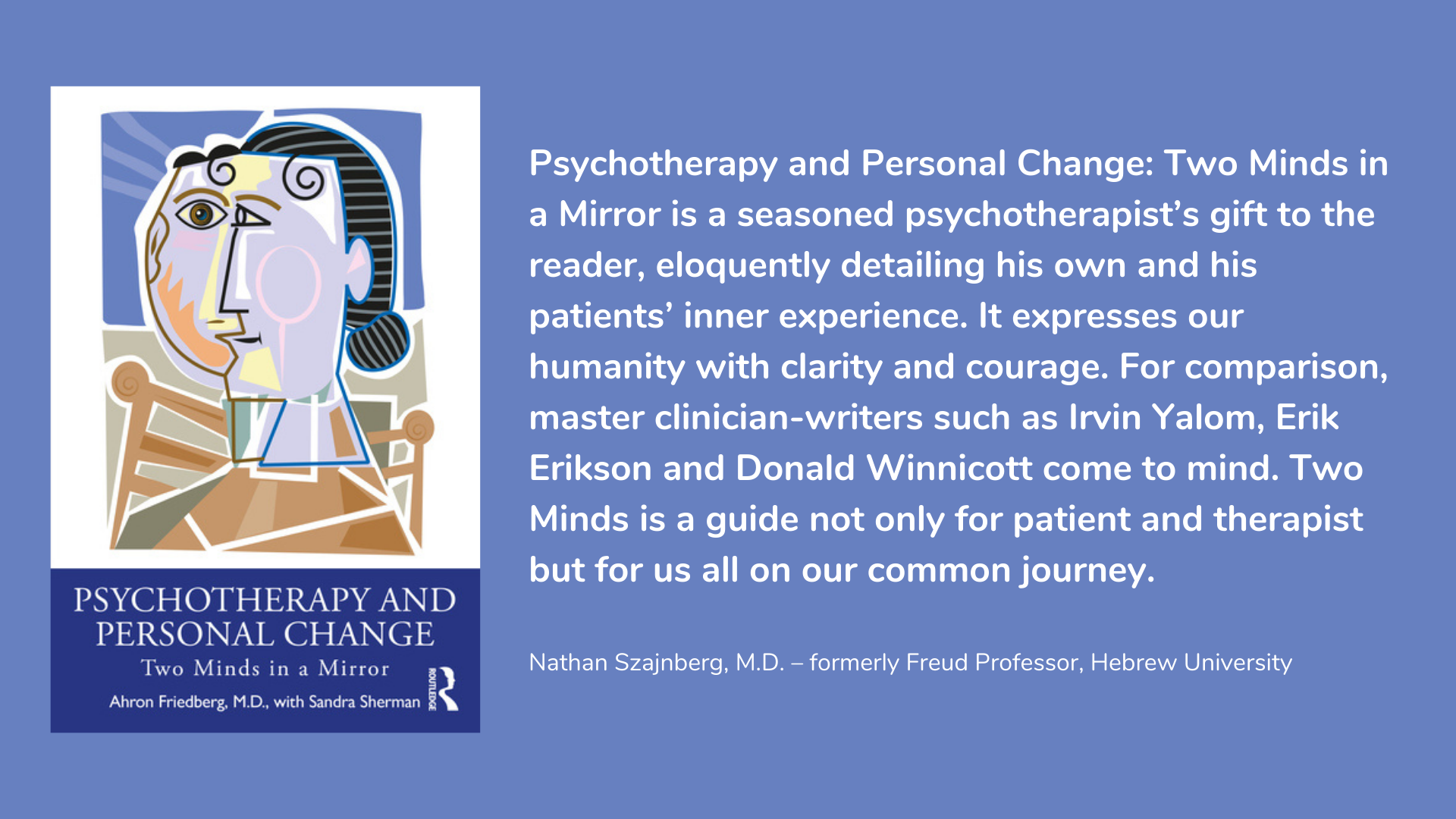How to Forgive Yourself
When Is It Okay To Stop Feeling Guilty, And How To Begin?
Life is rarely linear. For example, when you try to learn from your mistakes, you recur to the past; you dwell on what you’ve done (“I have to reflect!”) and it’s hard to move on. Your backwards-facing posture, while necessary, can also feel static. You feel guilty if you turn your mind towards the future, even though coping with the future is why you’re ruminating on the past. It’s so paradoxical.
Yet at some point, we must move on. We need to accept ourselves and, in so doing, give ourselves permission to try being happy. The guilt has to stop. Do the feelings of endless regret, of playing one’s life out in one’s head with new actors, alternate scenes, and rewritten dialogue have to end in tears? The past has passed. What happened, happened, and no fantasy will change it. It’s time to situate yourself in the present. If no one else has forgiven you, at least you can, or at least (if you aspire to be a stand-up comedian) after a decent interval of self-punishment. According to the Second Law of Thermodynamics, nothing is forever, and that applies equally to putting yourself through the wringer.
Of course, sometimes we contrive an image of ourselves that’s so apparently real that no amount of self-forgiveness seems adequate. “I’m stuck with myself. It’s just who I am.” We collapse into believing ourselves to be flawed – maybe our parents belittled us, or we messed up so many relationships that we feel congenitally emotionally incompetent. The feelings become self-fulfilling; we withdraw; the world appears to confirm our convictions. We drift towards negativity. It’s so easy. Even if there’s real truth in what we think, we’ve perfected the mechanism for making ourselves out to seem worse than we are. In trying to climb out of our rut, we dig ourselves deeper. We become our own worst enemy. The question is: Is there any way to stop?
Yes, if you understand what’s going on. In 1990, Stephen Stich published a study suggesting that we believe unfounded ideas when, for example, it’s easy to ignore good evidence to the contrary or we distort such evidence on account of anxiety. When we work ourselves up into believing the worst of ourselves, we’re liable to both these states. To escape, we have to calm down. We have to try to look objectively at all the stuff that we’ve done right. Then, slowly, we have to try to unwind our negative self-impression. We can listen to people that we know to offer reinforcement. We can comfort ourselves that we’ve (at least) stopped the downward spiral.
I’m thinking about self-forgiveness now because I’m still thinking about Mr. Lauren.
Years before entering treatment with me, he’d helped a bankrupt client with whom he’d stayed in touch. Occasionally, and especially as the client rebuilt his business, they’d grab a quick lunch together. Over time, they had apparently formed a bond. It gratified Mr. Lauren: “I thought I’d done something for the guy, and that he appreciated it,” he said one day as we rehashed his history. “You know, I cared about him. Or maybe I cared about myself – he allowed me to imagine that I was practicing law the way it should be practiced.”
Alas.
What seemed to engage Mr. Lauren’s idealism led to his serious dereliction – not just in the eyes of his peers but, by implication, in his own eyes. It started when the old client sent him new ones, mostly with tough business problems. Mr. Lauren enjoyed the challenge. But he failed to see that some of these individuals were involved in illegal schemes. “I just thought that if they were friends of my previous client, they must be good guys. Boy, was I naïve,” he told me. When the authorities finally swooped in and uncovered what was afoot, Mr. Lauren was caught in the middle. The firm’s management went ballistic and demanded that he quit. When he tried to explain, his own conscientious work on the clients’ behalf seemed to speak for itself. He had to leave. By the time it emerged that he’d played no direct part in the activities, and that the situation was less one-sided than it had initially appeared, the damage was already done. Mr. Lauren’s reputation was sullied, if only because he’d failed to perform the due diligence required of any lawyer involved in business matters.
“I thought I was being helpful. Shrewd, even. How dumb can you get?” He said he deserved what he got.
In part, it was the quick reversal that stunned him into anger at himself. He’d hardly even had time to think about what had happened. He just opted for what everyone else seemed to think. He took full responsibility for how he’d embarrassed himself and the firm. For months he expected he’d be disbarred. He thought the firm would be fined by the state. When he sought moral support from his old client, the one with whom he had formed a bond, he was crushed when the guy wanted no more to do with him. “That was the last straw,” he said. “You could say he was somewhat involved, but he just became so aloof. He acted like I was poison.” If that guy could turn on him, it seemed like no one would try to see the events from his point of view. After all, he was finally vindicated, at least insofar as nothing he’d done was intentionally illegal.
Mr. Lauren’s real “crime,” if you want to call it that, was taking a leap of faith, ignoring some of the procedures that his firm had in place to prevent leaps of faith. He took the cowboy rather than the bureaucratic route, in part because he felt that he knew how he could help. He was a little too sure of himself – when he shouldn’t have been. He had allowed his ego to get in the way of common sense, his training, and the established procedures of an organization which had trusted him to follow those procedures. “You know,” he said, “I feel like I betrayed them.”
In a way, he did. But being clear-eyed about one’s actions, and expressing remorse, has to give way to rebuilding. It took months for Mr. Lauren to see that. He’d swing between isolating himself – where he’d sulk and binge on old movies – and going out with former colleagues whom he’d invite to rehash the whole sorry story and mete out delayed disapproval. They were roped in as proxies to his masochism . . . until, finally, word spread that he was behaving too masochistically. “They got the idea that I was looking for punishment, that I’d sort of become obsessed with it.”
A few people, however, offered to help – at least insofar as they refused to participate in Mr. Lauren’s perpetual take-down. Some even casually mentioned firms that might be interested in entrepreneurial guys who had, perhaps, “matured” as they delicately put it. After a while, and after we spoke repeated about his next steps, he took the plunge: he began sending out carefully-worded letters to carefully-researched firms that seemed like they wanted to take a chance on him. There was no more time left to sulk. Besides, he had to put on a suit in the morning and present a confident face.
He also explored his guilt based on his relationship with his father, who was an accomplished attorney of impeccable ethics. And identifications with his mother, who didn’t hold to such high standards in her own career.
Eventually, it paid off. The self-forgiveness that he finally achieved was made up of practical considerations, i.e., he allowed himself to get on with life. He got to work; ditched the cockiness; tried to be more of a team player. He allowed himself to feel productive again, but within parameters acceptable to his new firm and his profession. If he wasn’t sure what to do, he’d ask someone, rather than just relying on instinct. For Mr. Lauren, self-forgiveness meant acting like a renewed person, like someone who’d learned his lesson and was putting into practice what he had learned.
In pursuing happiness, we have to calibrate where we have been with where we wish to go, so that we can take the steps necessary along the way. We can’t just will ourselves to be another person; we can’t just forgive ourselves and pretend that the past will have no effect on the present. Rather, we have to allow the past to work for us constructively, so that we can learn from it and effectively move on. In this sense, self-forgiveness is not a clean break from the past. It requires an informed continuity, understanding, and ultimately an initiative to employ the past to our present advantage.
About The Author
Ahron Friedberg, M.D., is Clinical Professor of Psychiatry at Mount Sinai Icahn School of Medicine, New York, and served twice as President of the American Society of Psychoanalytic Physicians. He is Editor of American Academy of Psychodynamic Psychiatry and Psychoanalysis Forum, Book Editor of Psychodynamic Psychiatry.
Essential Reading
www.all-about-psychology.com/psychotherapy-and-personal-change.html


